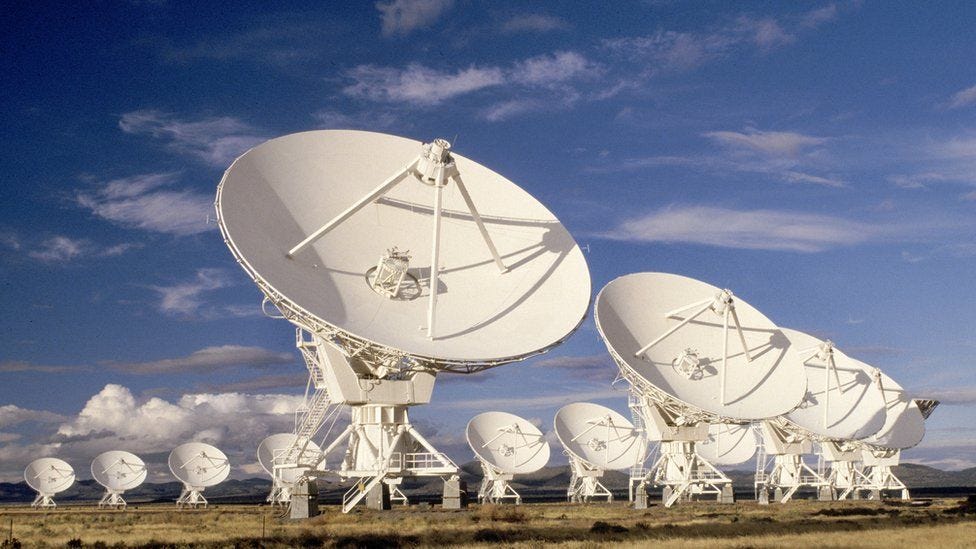A friend of mine and I sat through the movie Knowing the other night. While one of the worst movies I've watched in a while (incoherent plot, numerology silliness, Nicolas Cage once again playing Nicolas Cage), the film did serve one purpose: it got us talking about the idea of life on other planets.
Despite my X-Files affections, I tend to doubt that we have neighbors in the universe: other populated worlds aren't mentioned in the Bible, and most scientists say the odds against are just too huge otherwise. Maybe I'm your typical egocentric human, but when astronomer Carl Sagan said that if life didn't exist elsewhere in the universe it would be "an awful waste of space," I guess I feel kind of special.
At the same time, I recognize that just because the Bible doesn't record the existence of life on other planets doesn't mean there isn't. Remember: the Bible is a historical-redemptive narrative, not an all-encompassing science book. And speaking of science, there are plenty of scientists who do not share my doubts, running huge scientific initiatives and spending a boatload of money in hopes of making some kind of contact with other beings.
Despite my doubts, and certainly different from the typical evangelical Christian line, the argument for other life in the universe does seem plausible, if for no other reason than the very nature of God as Creator. But here's the question I think it all comes down to: the Scriptures attest to our fallen nature as created beings, but is that to mean all that is on the Earth or all that is in the entire universe?
The question is important because, while we have the account of God redeeming Earth through Christ, if there are indeed other beings in the universe and the universe is indeed fallen, then was there a plan of salvation for other planets as well? C.S. Lewis believed so, namely that when the Bible talks of "creation," it is in reference to the Earth and not necessarily the universe. From this perspective, the idea of other created beings without need of redemption is possible; we just don't have a record of it.
Thinking about all this is particularly interesting in light of mankind's desire to explore space. Theoretical physicist Stephen Hawking says that the only way humanity can survive is to figure out how to leave the planet; hence, the importance of the U.S. space program. This, of course, begs the question: If the Earth is the only fallen part of God's creation, what does our going out into a non-fallen universe mean? Does it matter? And what would it be like to meet other creation who are intact in their creation perfection?
This is what I understand Lewis' Space Trilogy to be about: man leaves Earth (called the Silent Planet, as it was cut off from the rest of the universe because of its evil), to colonize elsewhere in the universe (Perelandra) among beings not in need of redemption. These innocents, though not fallen themselves, are nevertheless affected by humans and Earth's evil before it is all finally resolved in the Siege of Deep Heaven against the Bent One of Earth. In other words, sinful Earthlings contaminated another part of space which, until their arrival, had not been so. Thankfully, however, good overcame evil.
I've always thought of and understood the Fall applying to all of God's universal creation; thus, I differ with Lewis' premise that creation perfection is alive and well outside the surly bonds of Earth. Having said that, however, if God so chose to redeem other inhabitants of his universal creation, I'm assuming he has both prerogative and means to accomplish his will. In my finite, self-centered self, it's just easier to think about me and Earth, especially since God gave us a record of all he has done for redemption here (not to mention that I have no plans or desire to leave).


